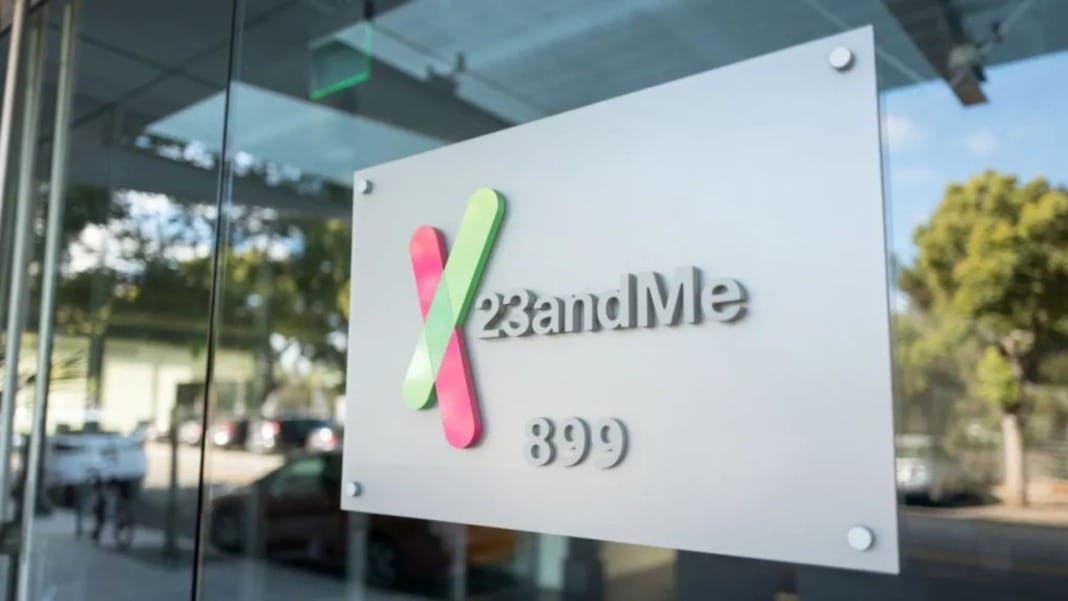In a significant restructuring move, genetic testing company 23andMe announced on Monday that it is reducing its workforce by 40%, affecting over 200 employees. This decision is part of a broader strategy to cut costs as the company re-focuses on its core genetic testing services and strategic research partnerships.
CEO outlines cost-cutting measures and strategic changes
23andMe’s CEO and co-founder Anne Wojcicki described the layoffs as a “difficult but necessary” step to secure the company’s long-term stability. The layoffs are expected to save 23andMe more than US$35 million, enabling it to streamline its operations while concentrating on its primary consumer products and research collaborations.
In a statement, Wojcicki expressed sympathy for the affected employees but noted the urgency of reducing costs. “These actions were not easy, but they are critical for our continued focus on what we do best: providing trusted genetic information to consumers and building valuable partnerships that advance research.”
Therapeutics programs set to close as company shifts focus
Alongside the layoffs, 23andMe confirmed plans to discontinue its therapeutics division, which has focused on drug development using data from its vast genetic database. The company’s therapeutics programs, which included two immuno-oncology initiatives, aimed to develop new cancer treatments by harnessing the body’s immune system to target cancer cells. According to the therapeutics division’s website, these programs were designed to “restore the ability of the body’s immune cells to kill cancer cells.”
Despite years of investment, 23andMe’s therapeutic ventures have faced challenges. While the company’s genetic data has been valuable in providing insights for personalised healthcare and genetic research, the shift away from drug development marks a strategic pivot. Shutting down these programs will allow 23andMe to dedicate its resources and expertise to the core areas of consumer genetic testing and research partnerships.
Challenges and setbacks in the past year
The restructuring follows a challenging year for 23andMe, which has faced both security and financial setbacks. In April of last year, the company became the target of a significant cybersecurity breach, which exposed the personal data of 6.9 million users. The breach reportedly went undetected for over 18 months, raising serious concerns about the company’s data protection practices.
Following the breach, 23andMe was subject to a US$30 million settlement in a class-action lawsuit, and the scandal led to the resignation of the entire board of directors. These events have pressured the company to improve its data security and rebuild its reputation with consumers, investors, and regulatory bodies.
This series of challenges has pushed 23andMe to re-evaluate its business model. By focusing on genetic testing and its associated research partnerships, 23andMe hopes to stabilise financially and continue offering its unique services to millions of customers. However, these significant layoffs and program closures indicate that the company’s journey to recovery may still face obstacles.
23andMe was founded in 2006, gaining a reputation for its affordable, at-home genetic testing kits that provide insights into ancestry and health predispositions. Over the years, it has expanded into medical research, working with pharmaceutical companies to leverage its extensive genetic database. Despite its successes in these areas, the company now seems intent on narrowing its focus to core services while reducing the scale of its operations.
The company has not yet detailed specific support measures for employees affected by the layoffs, though it has expressed commitment to assisting them during the transition. As the company scales back on its drug development ambitions, 23andMe’s primary focus will remain on consumer genetic insights and research-driven partnerships.





